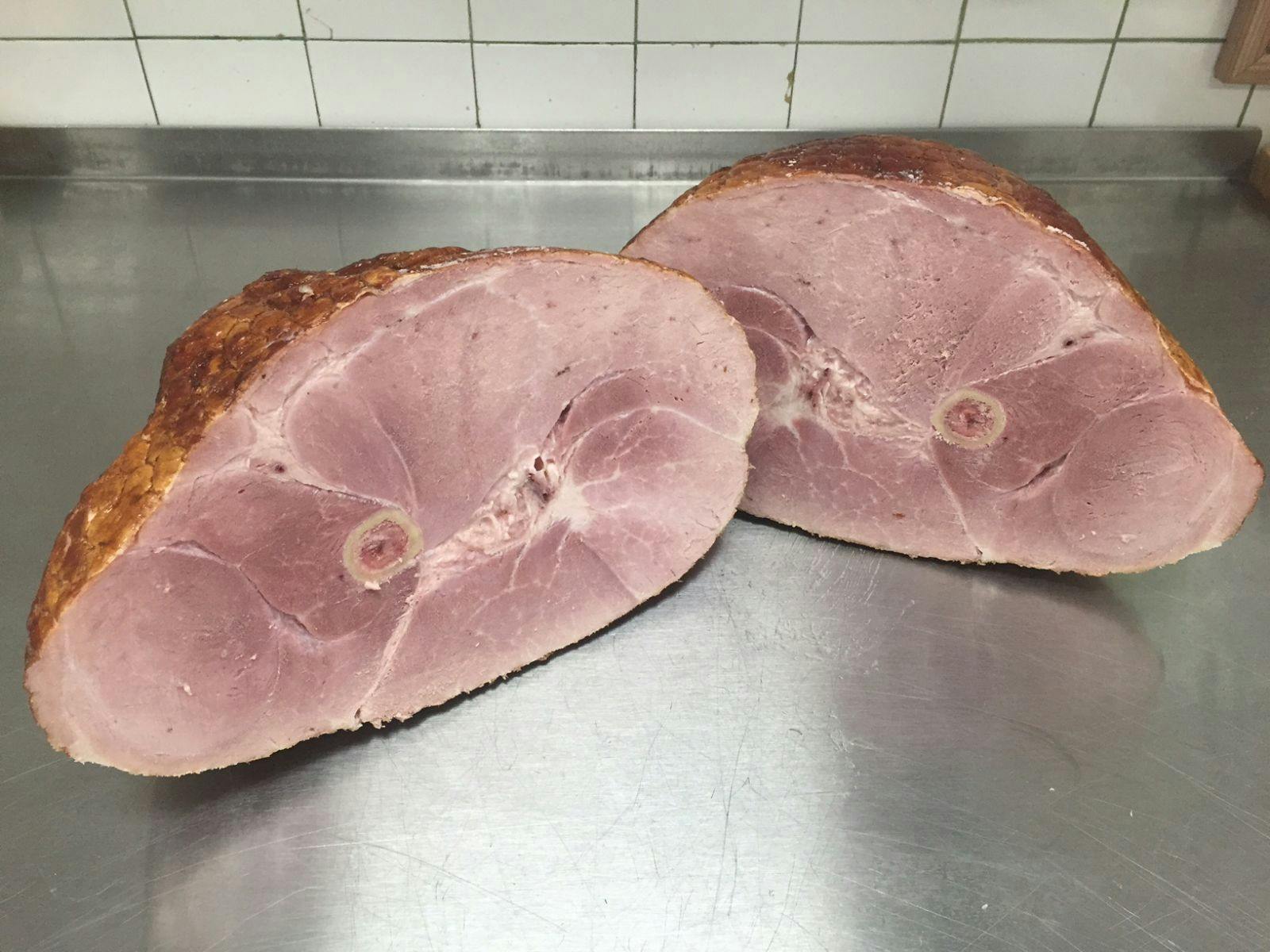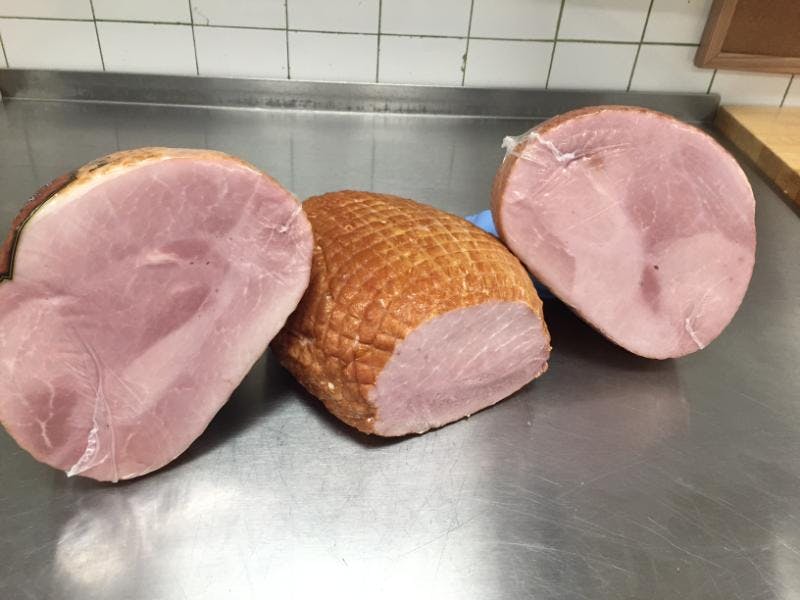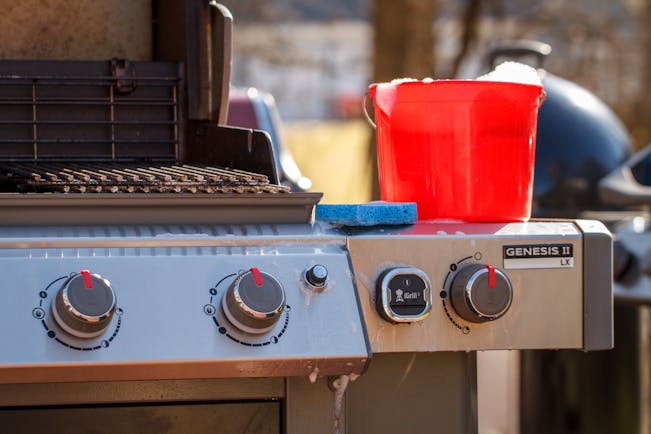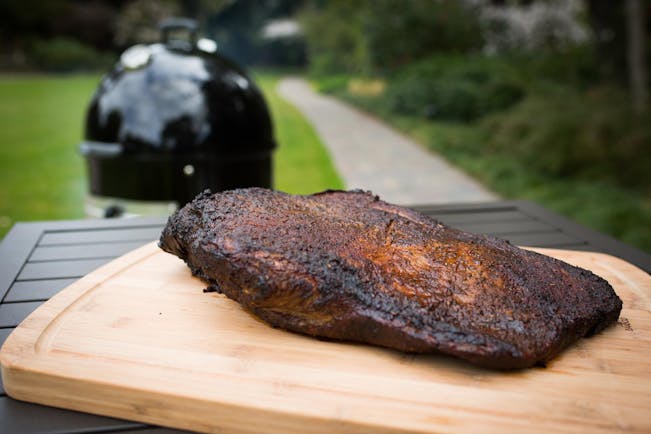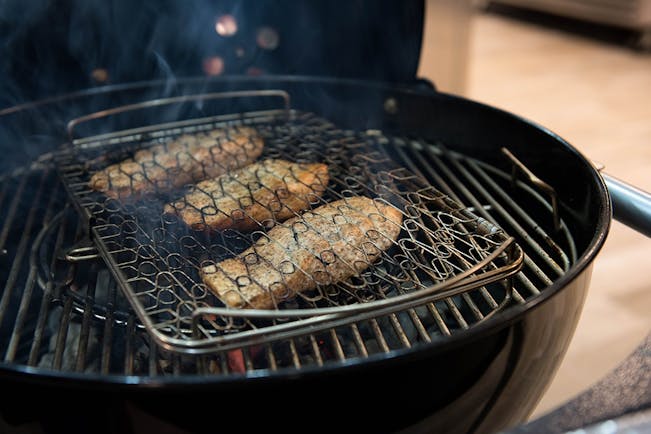Top Lamb And Ham Cuts For Easter
The two most popular types of meat for Easter at my meat market are ham and lamb. The sales between both are pretty much equal. Many customers have a large crowd for Easter dinner and often prepare both.
The number one cut of lamb to cook for Easter is a roasted leg of lamb. It’s great on a rotisserie, here is one of my favorite recipes.
Leg of lamb is truly a celebratory roast. You can get the leg of lamb prepared a few different ways from your butcher: Whole bone-in requires more skill when carving to navigate around the bones.
Semi-boneless has the hip and shank bone removed so only the center femur bone remains and is a little easier to carve.
Boneless is the easiest to carve.
A boneless leg of lamb can also be butterflied open flat for grilling. It can also be stuffed with fresh herbs or seasonings and rolled up and tied for roasting.
When shopping for leg of lamb, you want to first decide how you want your butcher to prepare it, how many guests are coming, and what grilling method you prefer. Ask the butcher to leave a nice, even amount of fat covering the roast. If you are grilling a butterflied leg of lamb, you may want to remove most of the fat. You can estimate about 1 lb. per person for bone-in, ¾ lb. for semi-boneless, and ½ lb. with boneless.
Rack of lamb is a great choice for a smaller dinner party. One rack usually feeds two people.
The tradition of Easter ham started back in the early years. Before refrigeration many hogs were processed in the fall season. The back legs were usually left over and would be cured. They would then be ready just in time for Easter.
Today there are a variety of different methods of curing hams. Dry cured or country hams are dry rubbed, smoked, and then aged to bring out the most flavor. These hogs are fed nuts and fruit for a more flavorful and tender ham. A second method is wet cured, where hams are brined, then lightly smoked, this is the most common ham on the market.
They are usually cured with salt, nitrates, and phosphates to preserve and add color and flavor. These hams are fully cooked and just need to be heated through. The spiral sliced ham is the most popular because of the ease of carving, and usually comes with a separate glaze packet. Check the label for the water content… the less water, the more flavor!!
Whole bone-in hams run between 16 and 20 lbs.
The butt half of ham is a little meatier than the shank half, but can be a little tricky to carve because of the hip bone.
Boneless hams are pieces of the pork leg that are pressed together and formed into an oval shape. During the curing process the proteins break down and allow the muscles to connect together, making it to appear like a solid muscle. Boneless hams come in variety of shapes and sizes and are the easiest hams to carve. We even slice and tie some boneless hams to make it super easy!!!
A serving size for bone-in ham is about ¾ lb. and about ½ lb. for boneless. My final tip is that it’s always best to allow your ham to get to room temperature before grilling.
Happy Easter!!!

.JPG?auto=compress,format)
.JPG?auto=compress,format)
.JPG?auto=compress,format)
.JPG?auto=compress,format)
.JPG?auto=compress,format)
